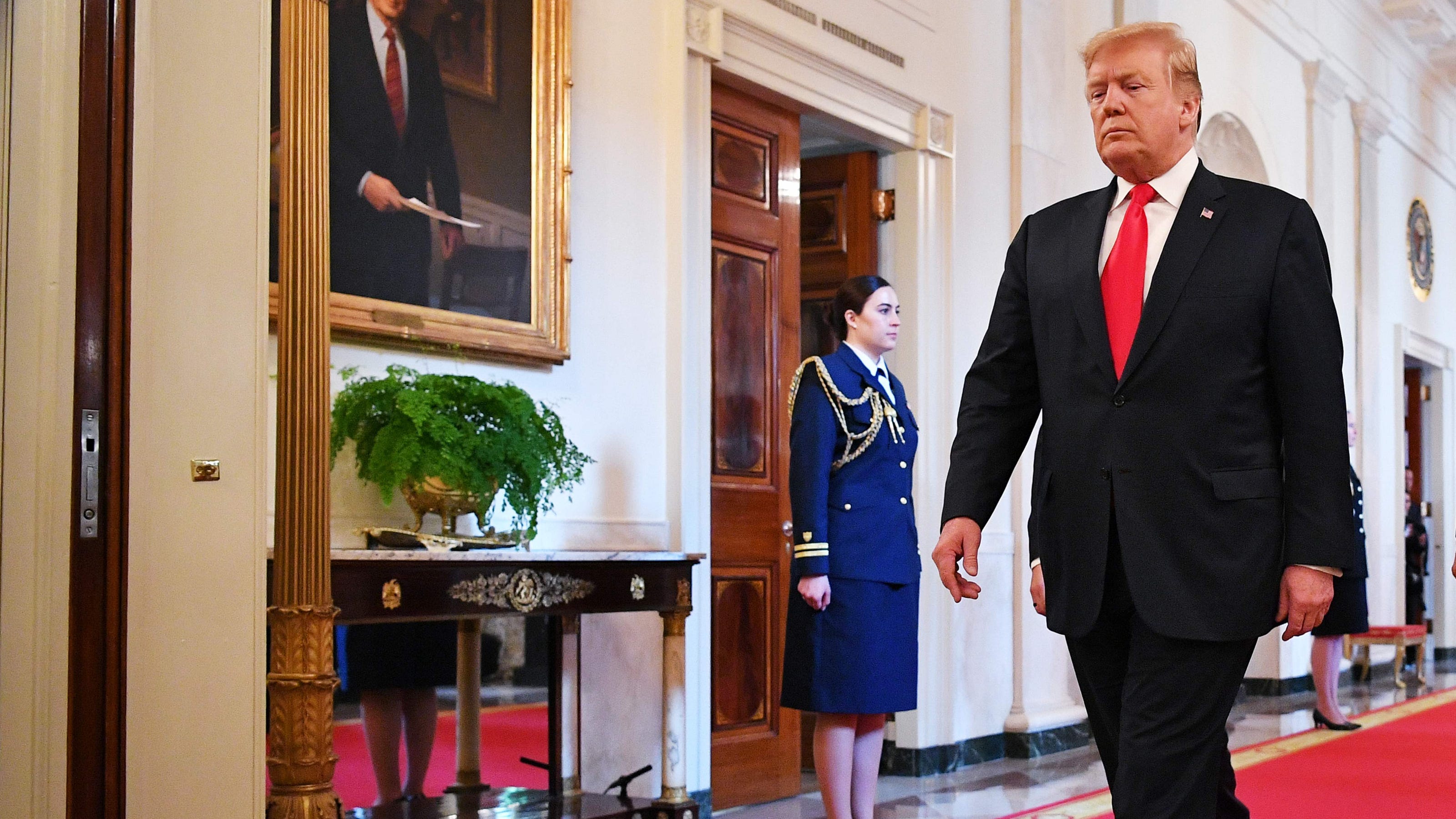Trump's Attempt To Sanction WilmerHale, Mueller's Former Law Firm, Fails

Table of Contents
The Context: Mueller's Investigation and WilmerHale's Role
Robert Mueller's appointment as Special Counsel in May 2017 marked a pivotal moment in the Russia investigation. His mandate was to investigate Russian interference in the 2016 United States presidential election and potential links between the Russian government and the Trump campaign. WilmerHale, a prominent and highly respected international law firm, was chosen to represent Mueller. Their expertise in complex investigations and white-collar crime made them a logical choice for this high-stakes undertaking.
- Mueller's Investigation: The investigation spanned nearly two years, resulting in indictments and convictions of several individuals and entities.
- WilmerHale's Expertise: The firm's reputation for handling sensitive and high-profile cases was crucial in ensuring the integrity and effectiveness of the investigation.
- Key Findings: The Mueller Report detailed extensive contacts between the Russian government and the Trump campaign, though it did not establish sufficient evidence to conclude a criminal conspiracy.
The selection of WilmerHale to represent Mueller further cemented the investigation's legitimacy and underscored the seriousness of the allegations being investigated.
Trump's Allegations and the Basis for Attempted Sanctions
Trump's allegations against WilmerHale were rooted in his deep dissatisfaction with the Mueller investigation. He consistently attacked the probe as a "witch hunt" and viewed the firm's involvement as an integral part of what he perceived as a politically motivated attack. While the specifics of his claims varied, they generally centered on the idea that WilmerHale's representation of Mueller constituted a conflict of interest or otherwise violated unspecified rules or norms.
- Lack of Specific Evidence: Trump's public pronouncements often lacked concrete evidence to support his claims.
- Absence of Legal Basis: The attempted sanctions lacked a clear legal basis. No specific laws or executive orders justified the unprecedented action.
- Political Motivation: The attempt to sanction WilmerHale was widely perceived as a politically motivated act aimed at undermining the Mueller investigation and its findings.
The Failure of the Sanctions Attempt: Legal Challenges and Outcomes
The attempted sanctions against WilmerHale faced immediate and significant legal challenges. Various parties argued that Trump's actions were an abuse of executive power and a violation of due process. The courts ultimately sided against Trump, rejecting his attempt to sanction the firm.
- Legal Challenges: The legal challenges highlighted the lack of a justifiable legal basis for the sanctions.
- Court Reasoning: The courts emphasized the separation of powers and the importance of upholding the rule of law. The attempted sanctions were deemed an overreach of executive authority.
- Impact on Trump's Authority: The court's decision set a significant precedent, limiting the ability of future administrations to use sanctions to target legal representation in politically sensitive investigations.
The failure of the sanctions attempt established a crucial legal precedent regarding the limits of presidential power and the protection afforded to legal counsel.
Political Ramifications and Public Response to the Failed Sanctions
The failed sanction attempt had significant political ramifications. Democrats largely praised the court's decision, viewing it as a victory for the rule of law. Republicans, while divided, largely remained silent or defended Trump's actions, highlighting the deep partisan divisions surrounding the Mueller investigation. Public opinion was largely split along partisan lines, reflecting the highly polarized political environment.
- Partisan Reactions: The incident further exacerbated existing political divides.
- Media Coverage: Extensive media coverage underscored the high stakes of the legal battle.
- Long-Term Implications: The failed sanctions attempt raised important questions about executive overreach and the integrity of the legal system.
Conclusion: The Lasting Impact of Trump's Failed Sanction of WilmerHale
Trump's attempt to sanction WilmerHale ultimately failed due to a lack of legal basis and an overreach of executive power. The courts decisively rejected the attempt, protecting the firm and establishing a vital precedent regarding the limits of presidential authority to interfere with legal representation in sensitive investigations. This case served as a crucial reminder of the importance of checks and balances in the US system of government. This episode highlights the importance of understanding the complexities surrounding executive power and the legal battles that often accompany attempts to use sanctions against legal professionals and firms. Learn more about Trump's sanctions, the WilmerHale case, the Mueller investigation impact, executive power limits, and similar legal battles to gain a deeper understanding of this significant event.

Featured Posts
-
 Increased Vetting For Student Visas U S Temporarily Suspends Interviews
May 29, 2025
Increased Vetting For Student Visas U S Temporarily Suspends Interviews
May 29, 2025 -
 Woman Sentenced For Kidnapping And Sale Of Her Six Year Old Child In South Africa
May 29, 2025
Woman Sentenced For Kidnapping And Sale Of Her Six Year Old Child In South Africa
May 29, 2025 -
 58 Colegios En Aragon Con Posible Sorteo Tras La Escolarizacion
May 29, 2025
58 Colegios En Aragon Con Posible Sorteo Tras La Escolarizacion
May 29, 2025 -
 All The Air Jordans Releasing In May 2025
May 29, 2025
All The Air Jordans Releasing In May 2025
May 29, 2025 -
 Sjobading Guide Til Beste Badetemperaturer Og Vaerforhold
May 29, 2025
Sjobading Guide Til Beste Badetemperaturer Og Vaerforhold
May 29, 2025
